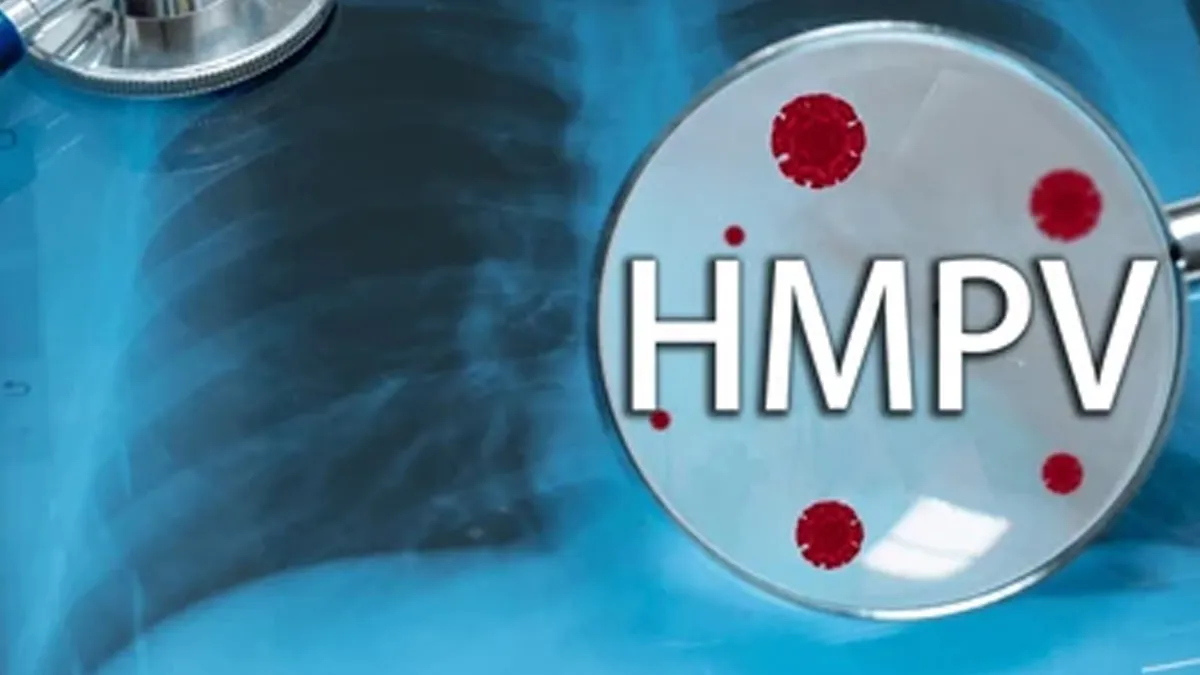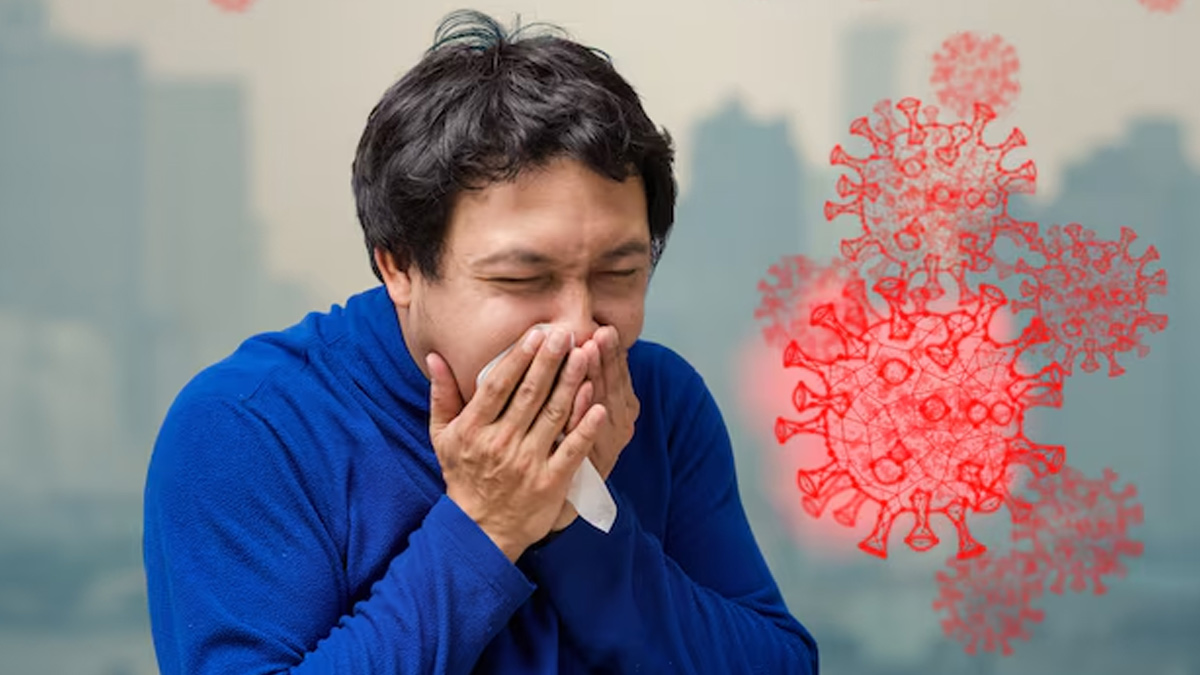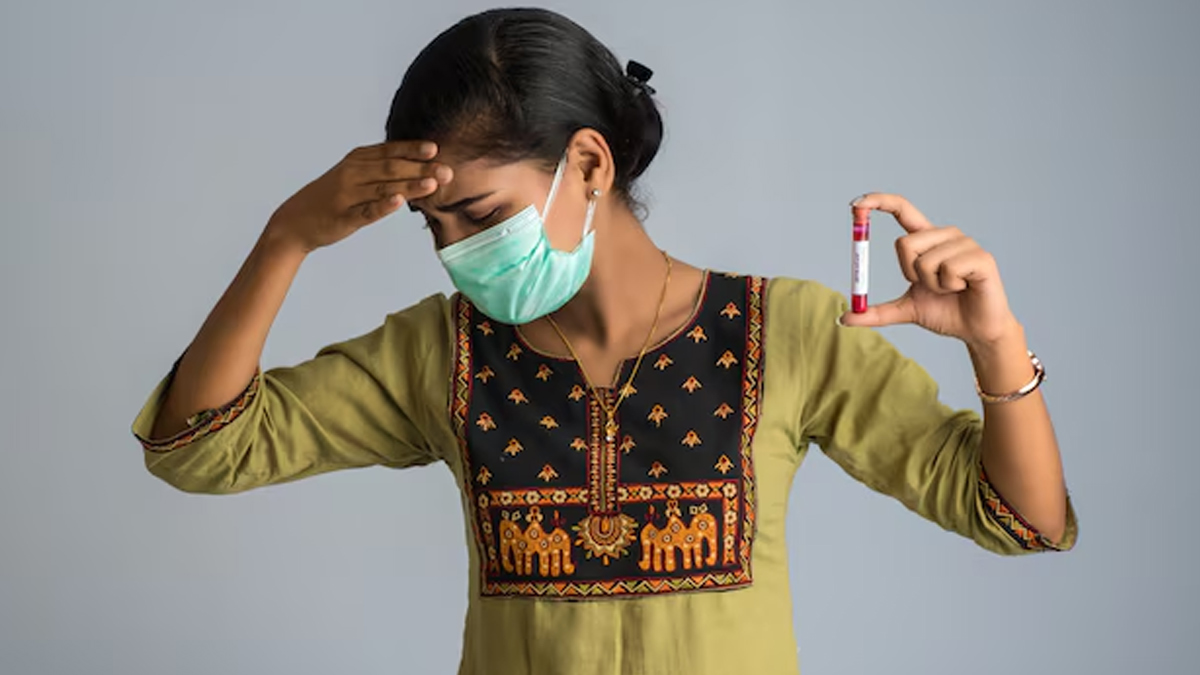
The Human Metapneumovirus (HMPV) outbreak in China last week sparked global concern, prompting health authorities to strengthen healthcare systems and infrastructure. On Monday, January 6, India confirmed five cases of HMPV: a three-month-old female and an eight-month-old baby in Bengaluru, a two-month-old infected in Ahmedabad, and one case each reported in Chennai and Salem.
Amid growing reports of HMPV cases in different parts of India, health authorities in Delhi and Karnataka have issued advisories, asking hospitals to report cases of influenza-like illness and Severe Acute Respiratory Infection (SARI) through the Integrated Health Information Platform (IHIP) portal and mandating stricter isolation of suspected cases.
While vigilance is key, Union Health Minister JP Nadda, in a video statement, shared that the HMPV is not a new virus, urging people to not panic and remain calm. "Health experts have clarified that HMPV is not a new virus. It was first identified in 2001, and it has been circulating in the entire world for many years. HMPV spreads through air, by way of respiration. This can affect persons of all age groups. The virus spreads more during the winter and the early spring months," he said.
Five years after the COVID-19 outbreak, it’s natural for people to feel alarmed by the emergence of another virus in China. However, it’s crucial to prioritise awareness and understanding of the virus over speculation about potential consequences. Therefore, answered below are some of the most Frequently Asked Questions (FAQs) and their answers shared by experts.
Also Read: Is HMPV Spreading to India? Telangana Urges Masks and Isolation Despite Denying Cases
What is the Human Metapneumovirus (HMPV)?

Human Metapneumovirus (HMPV) is a common respiratory virus that mostly causes an upper respiratory infection similar to a common cold. It can also cause lower respiratory infections like pneumonia, asthma flare-ups, or worsen Chronic Obstructive Pulmonary Disease (COPD). While HMPV isn't the same as RSV (Respiratory Syncytial Virus), it belongs to the same family, Paramyxoviridae, in the subfamily Pneumovirinae.
When did HMPV Virus Start?
Dr Sachin Kumar, Senior Consultant - Pulmonology and Critical Care Medicine, Sakra World Hospital, Bengaluru, says, "Human metapneumovirus (HMPV) is commonly observed in clinical practice in both India and China. First discovered in 2001, it became widely recognised by 2016 as a significant cause of respiratory issues in children, second only to Respiratory Syncytial Virus (RSV)."
HMPV was discovered in 2001 by Bernadette G van den Hoogen and her colleagues in the Netherlands. The virus was initially identified in the respiratory secretions of 28 young children.
What are the most common symptoms of HMPV?

Symptoms of HMPV include cough, fever, nasal congestion, and shortness of breath. If left untreated, symptoms of HMPV infection may progress to bronchitis or pneumonia and are similar to other viruses that cause upper and lower respiratory infections.
According to Dr Sachin, HMPV is typically self-limiting, with symptoms lasting 3-6 days, often followed by a lingering cough, cold, and a runny nose. While the majority of cases (85-90%) recover at home, 5-10% may require hospitalisation, and severe cases resulting in fatality occur in less than 5% of patients.
How is HMPV transmitted?
HMPV spreads through direct contact with an infected person. It can transmit via respiratory droplets released when they cough, sneeze, or talk. The virus can also spread by touching objects or surfaces that have the virus on them and then touching the mouth, nose, or eyes.
What age group is at highest risk of Human Metapneumovirus?

Anyone can be infected with HMPV. However, children younger than five years of age and older adults aged above 65, and those with weakened immune systems, are more at risk of severe illnesses.
Can you take antibiotics for HMPV?
Antibiotics are medications used to treat bacterial infections, says Dr Sunil Kumar K, Lead Consultant - Interventional Pulmonology, Aster CMI Hospital, Bengaluru. Therefore, they are ineffective against viruses like HMPV, as these are viral infections. Not only will using antibiotics for HMPV be unhelpful, but it could also contribute to antibiotic resistance, a growing concern in medical treatment.
Is there a vaccine or treatment for HMPV Virus?
Currently, there is no specific vaccine available to prevent HMPV infections, nor is there a standard treatment protocol for those affected by the virus.
Also Read: HMPV Outbreak: Are We Ready With Tests and Vaccines?
Is HMPV life threatening?
According to Dr Sunil, HMPV can lead to respiratory infections, particularly in vulnerable populations such as infants, the elderly, and individuals with compromised immune systems. However, most cases are mild and self-limiting, meaning they can resolve on their own without treatment. However, in certain circumstances, especially among those with pre-existing health conditions, HMPV symptoms can worsen, necessitating more advanced care.
How can I protect myself from HMPV?

Here are some expert-approved measures to protect yourself from HMPV:
- Use soap and water to wash your hands for at least 20 seconds, especially after being in public spaces.
- Use a hand sanitiser when soap and water are not available.
- Avoid close contact with people who are sick, and avoid touching your face, especially your eyes, nose, and mouth.
- Cover your mouth and nose with a tissue or elbow when coughing or sneezing.
- Regularly clean commonly touched surfaces like doorknobs, phones, and countertops.
- Wear a mask in crowded or poorly ventilated areas.
- Maintain a healthy diet, stay hydrated, exercise regularly, and get enough sleep.
- Avoid going out if you are sick to prevent spreading the virus to others.
- If you develop symptoms, consult a healthcare professional for guidance.
- Follow updates and guidelines from health authorities to stay aware of risks and prevention measures.
How is HMPV different from other respiratory viruses like RSV or the flu?

HMPV is different from other respiratory viruses such as RSV and influenza.
While RSV is primarily known for causing severe respiratory infections in infants and young children, HMPV can affect individuals of all ages. Unlike the flu, characterised by sudden onset and systemic symptoms such as high fever and body aches, HMPV often presents with a gradual onset of respiratory symptoms, including cough and wheezing, which can sometimes be mistaken for other viral infections, says Dr Si, adding that the genetic makeup of HMPV sets it apart, as it belongs to a different family of viruses.
Also watch this video
How we keep this article up to date:
We work with experts and keep a close eye on the latest in health and wellness. Whenever there is a new research or helpful information, we update our articles with accurate and useful advice.
Current Version